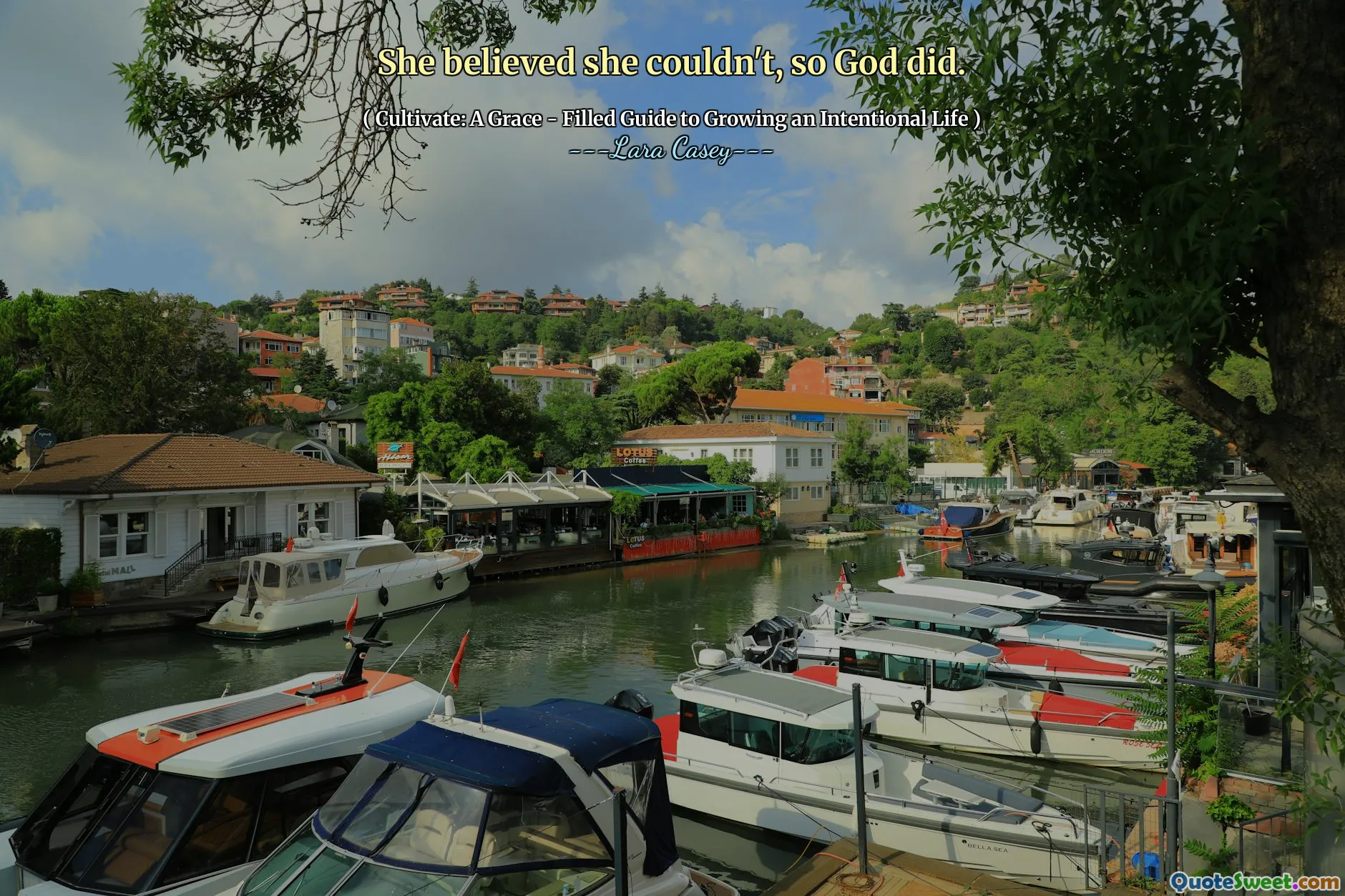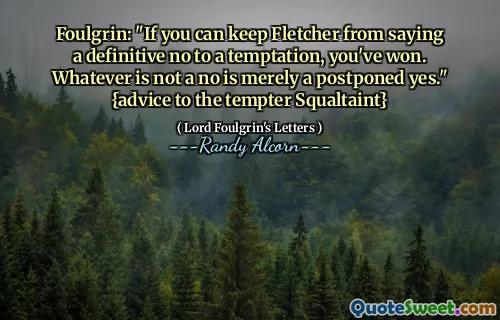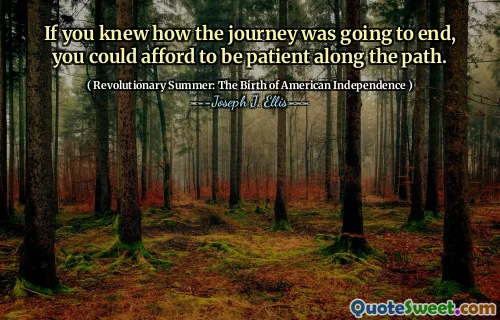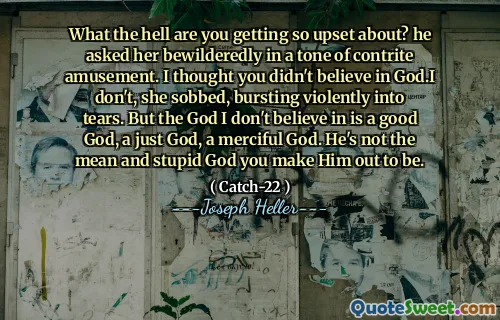
She believed she couldn't, so God did.
This powerful quote underscores the profound impact of belief and faith on transforming perceived limitations into divine possibilities. Often, our doubts and self-imposed restrictions act as barriers that hinder us from achieving our full potential. When we internalize a narrative of incapacity, it becomes a self-fulfilling prophecy, preventing us from embracing opportunities or pursuing our true desires. However, the quote suggests that by releasing these doubts and entrusting ourselves to a higher power, we open the door for miracles and extraordinary outcomes that transcend human capabilities.
The idea that "she believed she couldn't" is a reflection of self-imposed defeatism. It highlights how a lack of confidence or faith in oneself can inadvertently invite divine intervention, leading to accomplishments that might have seemed impossible driven solely by human effort. Conversely, it also emphasizes the importance of faith—not necessarily in oneself alone, but in the power beyond us. When belief turns into faith, it becomes a catalyst for divine action—where divine intervention aligns with our intentions, bringing about results that surpass natural expectations.
From a spiritual perspective, this quote invites us to consider the harmony between human effort and divine intervention. It suggests that sometimes, surrendering our doubts and stepping forward in trust can open spaces for grace and miracles to occur. It encourages cultivating a mindset of infinite possibility fueled by faith, motivating us to let go of fear and embrace the divine will. Practically, this means shifting from a mindset of limitation to one of abundance and trust, recognizing that divine support can turn perceived failures into extraordinary successes. Ultimately, this quote inspires a combination of humility, faith, and action, reminding us that divine power is always ready to respond to genuine belief, transforming our impossible into reality.







